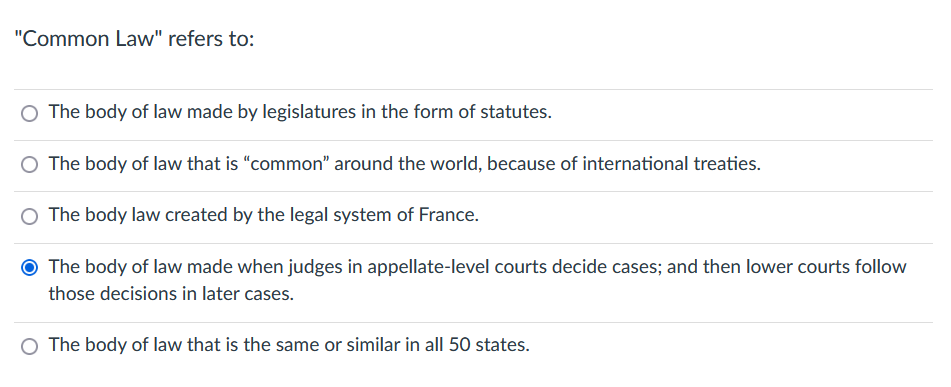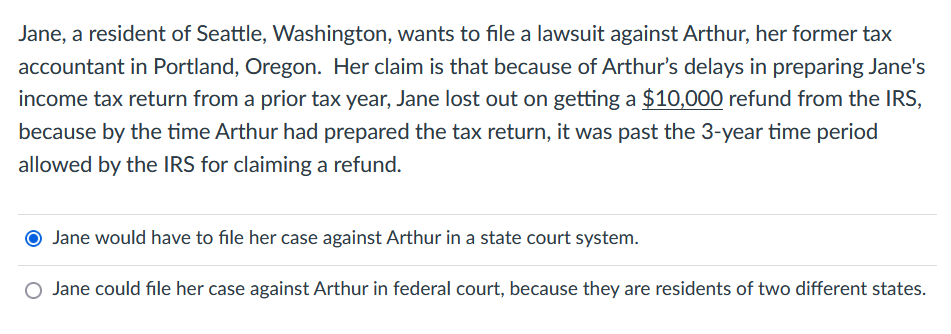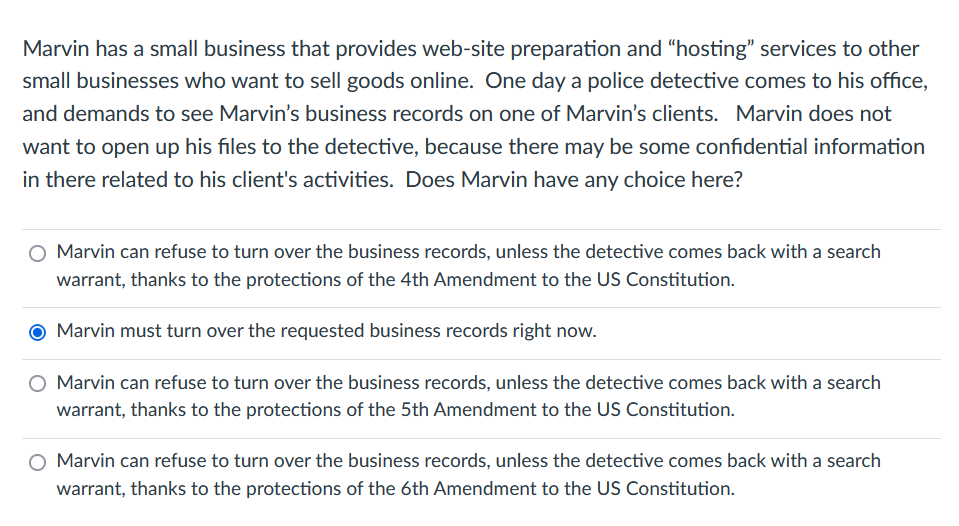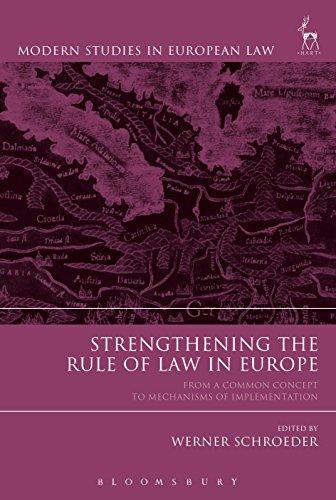



1)
"Common Law" refers to: O The body of law made by legislatures in the form of statutes. 0 The body of law that is "common\" around the world, because of international treaties. O The body law created by the legal system of France. The body of law made when judges in appellate-level courts decide cases; and then lower courts follow those decisions in later cases. 0 The body of law that is the same or similar in all 50 states. Jane, a resident of Seattle, Washington, wants to file a lawsuit against Arthur, her former tax accountant in Portland, Oregon. Her claim is that because of Arthur's delays in preparing Jane's income tax return from a prior tax year, Jane lost out on getting a $10,000 refund from the IRS, because by the time Arthur had prepared the tax return, it was past the 3-year time period allowed by the IRS for claiming a refund. O Jane would have to file her case against Arthur in a state court system. O Jane could file her case against Arthur in federal court, because they are residents of two different states.Marvin has a small business that provides web-site preparation and "hosting" services to other small businesses who want to sell goods online. One day a police detective comes to his ofce, and demands to see Marvin's business records on one of Marvin's clients. Marvin does not want to open up his les to the detective, becauSe there may be some condential information in there related to his client's activities. Does Marvin have any choice here? 0 Marvin can refuse to turn over the business records, unless the detective comes back with a search warrant, thanks to the protections of the 4th Amendment to the US Constitution. Marvin must turn over the requested business records right now. 0 Marvin can refuse to turn over the business records, unless the detective comes back with a search warrant. thanks to the protections of the 5th Amendment to the US Constitution. 0 Marvin can refuse to turn over the business records. unless the detective comes back with a search warrant. thanks to the protections of the 6th Amendment to the US Constitution. Carla has written a new play on her computer, and has saved the file on the hard drive, with a copy saved on a portable drive to be safe. To protect her intellectual-property rights in her play, she should file for: O a trade secret. O a trademark. O a patent. O a copyright














